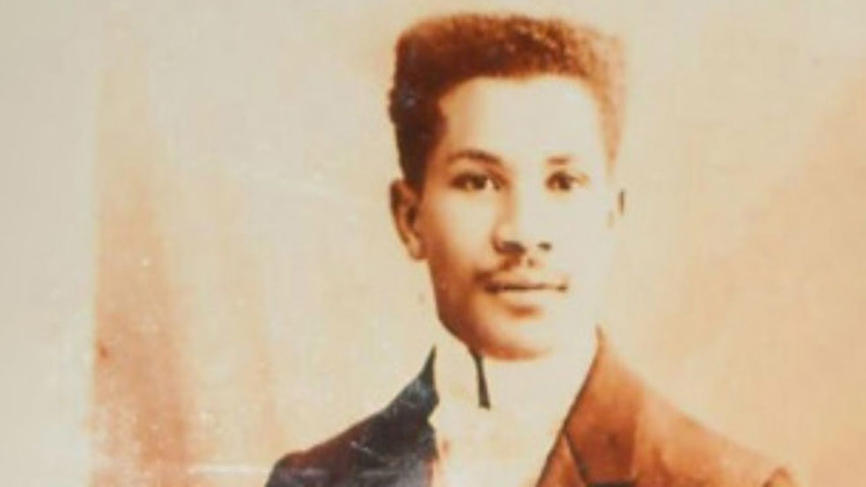
On the Anniversary of the Sinking of the Titanic, Bringing the Story of the Only Black Passenger to the Surface
Imagine the 1997 blockbuster film Titanic with a different cast of characters, ones based on actual historical figures: Instead of Rose DeWitt, there is a white French woman, Juliette Lafargue; and instead of Jack Dawson, there is a black Haitian man, Joseph Laroche—Lafargue’s husband and the only black passenger on the ship.
What was this family’s story, and how might learning about it shed light on our collective obsession with the tragic sinking of the RMS Titanic and ideas of race and mobility at that moment in history? What must it have been like to travel while black, on that ship, with those passengers?
Kellie Carter Jackson, Knafel Assistant Professor of Humanities and assistant professor of Africana studies at Wellesley, asked an audience at the Newhouse Center for Humanities to consider these questions at a recent event entitled “Losing Laroche: The Story of the Only Black Passenger on the Titanic.” Carter Jackson, a Newhouse Fellow this year, has been investigating the life of Laroche. She was inspired by an Ebony article about him and subsequently connected with the unofficial Laroche family historian in France.

Laroche, Lafargue, who was pregnant with their third child, and their two daughters, Simonne and Louise, were second-class passengers on the Titanic. They had traded in first-class tickets on another ship because that vessel required children to remain in the nursery, which the Laroches disapproved of. Laroche was a talented engineer, “from good stock,” as Carter Jackson said, highly educated in Europe, and he spoke French, English, and Creole. Yet as Carter Jackson pointed out, his story illustrates the limitations of black advancement at that time as he struggled to find employment in France; the family’s final destination was Haiti, Laroche’s homeland, where they sought a new life and new opportunities for economic security and advancement.
The Titanic sank on April 15, 1912; Laroche did not survive and was lost at sea. His wife and daughters escaped in a lifeboat and soon after returned to France, where Joseph Jr. was born. Issues related to trauma and of race and identity followed them throughout their lives, including through Nazi occupation, when Juliette Lafargue buried all evidence of her children’s black father to avoid scrutiny.
It was “not necessarily the sinking of the Titanic that killed Joseph Laroche, but rather anti-blackness—[it was] what caused him to have to leave in the first place,” said Carter Jackson. “He would have stayed in France if he could have found the employment that he needed. The institutional and discriminatory practice against black people often propelled them in a constant search for being and belonging.”
“Our public fascination with the Titanic and the narrative of an unsinkable ship encapsulates much of how we understand power, whiteness, and privilege…and Laroche signals to something more: the idea that black people are always in a constant state of leaving home in search of home.”
Kellie Carter Jackson
Over 100 years later, people remain obsessed with the fate of the Titanic. Carter Jackson called it a “beloved” tragedy and described it as less about the rise and fall of technology and modernity, and more about a potent combination of whiteness and wealth.
“Is it possible that the Titanic has become symbolic of white supremacy, and therefore its sinking has devastated people because it has shown that whiteness is fallible? That if something like this ship could sink, then what does that say about white supremacy; maybe we are not as supreme as we think we are?” Carter Jackson suggested.
While Carter Jackson’s research on the Laroche family and her exploration of ideas of race, power, privilege, mobility, and obsession will continue over the next few years, she is already drawing the connections between Laroche’s story and society today.
“Being black often feels like hitting an iceberg,” she said at the conclusion of the event, “where an unkind word or a microaggression is just the tip of deeper sentiments and policies intended to do one harm. Our public fascination with the Titanic and the narrative of an unsinkable ship encapsulates much of how we understand power, whiteness, and privilege…and Laroche signals to something more: the idea that black people are always in a constant state of leaving home in search of home.”
You can listen to Carter Jackson’s talk here.



